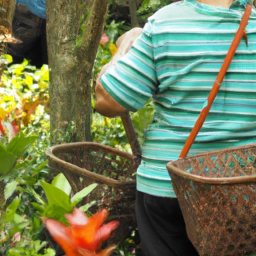Gardening For Elders Benefits
Table of Contents []
How Does Gardening Help The Elderly
We can all agree that gardening is an activity that we can all enjoy regardless of age. But for the elderly in particular, gardening can offer many mental, physical, and social benefits. But how does gardening help the elderly exactly? In this article, we will go over the eight key ways gardening can help improve the life of senior citizens.
Gardening has Mental Benefits
Gardening allows the elderly to actively pursue something meaningful. In turn, this provides a sense of purpose and accomplishment, which can provide a huge mental boost. Gardening can also help reduce stress levels, as working in nature has been scientifically proven to energize, relax, and de-stress the mind.
Physical Benefits of Gardening
Gardening has an abundance of physical benefits that come with the activity. Studies have shown that gardening can improve muscle strength, coordination, and balance. It can also increase flexibility that will reduce the risk of injury. Gardening also reduces the risk of obesity, as it is considered a moderate form of exercise that requires little to no equipment. Lastly, gardening has also been proven to decrease the risk of certain chronic diseases.
Gardening can Help Improve Memory
Older adults who garden can enjoy improved concentration, attention, and problem-solving skills. As gardening involves various activities like logging growing cycles, using tools, and coordinating skills, it can help to build stronger memories.
Social Benefits of Gardening
Gardening also has many social benefits that come with it. Firstly, gardening provides an excellent opportunity for interaction with other people, as elderly gardeners can join clubs, organizations, or participate in other gardening-related activities. Secondly, it increases the elderly person's sense of community or neighborhood by connecting with those around them. Finally, this activity results in a healthier, more vibrant lifestyle, which can look very attractive to family members or friends of the gardener.
Enhances Cognitive Skills
It is not a secret that gardening is a cognitively demanding task, thus engaging multiple dimensions of the mind. Gardening often requires problem solving, decision making, and certain calculations in order to achieve the desired result. Regular gardening can also lead to improved or increased creativity and insight.
Improves Brain Plasticity
Gardening as a hobby can also improve certain skills. These can range from organizational skills, to more creative activities like making floral arrangements or works of art. Gardening also prompts the elderly person to use all five senses in order to assess the situation before making decisions.
Gardening Helps Manage Arthritis
Older adults may suffer from physical ailments like arthritis. Still, this doesn't mean they should neglect physical activities like gardening. In fact, gardening can actually help increase mobility and reduce stiffness for elderly persons with arthritis since it is low impact.
Gardening Can Lead to Self-Sufficiency
Lastly, engaging in gardening activities can make the elderly more self-sufficient. Gardening activities do not require any special skills, but the results can be very rewarding. It is also very beneficial for elderly gardens, as it requires managing their own finances, planning, and knowledge of gardening techniques and plants.
In Summary
Overall, there are many benefits to gardening for elderly persons. It can help them stay physically fit or even lead to self-sufficiency. Gardening also offers mental health benefits, as it provides older adults with a sense of purpose and reduces stress. Finally, it increases social interaction and cognitive skills allowing elderly individuals to live independent, healthier, and vibrant lives.

Previous Page
Next Page
